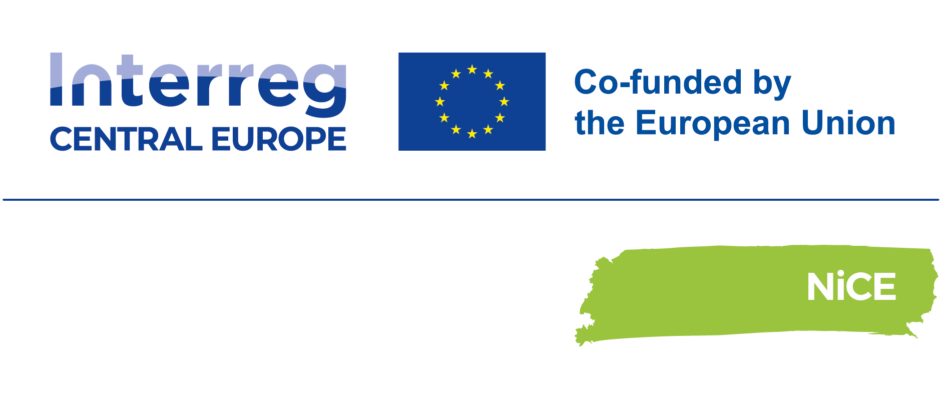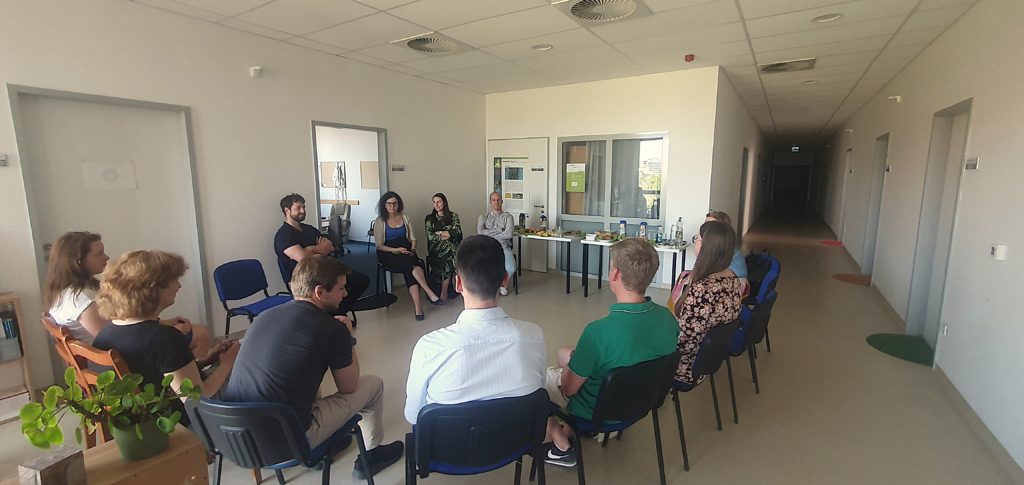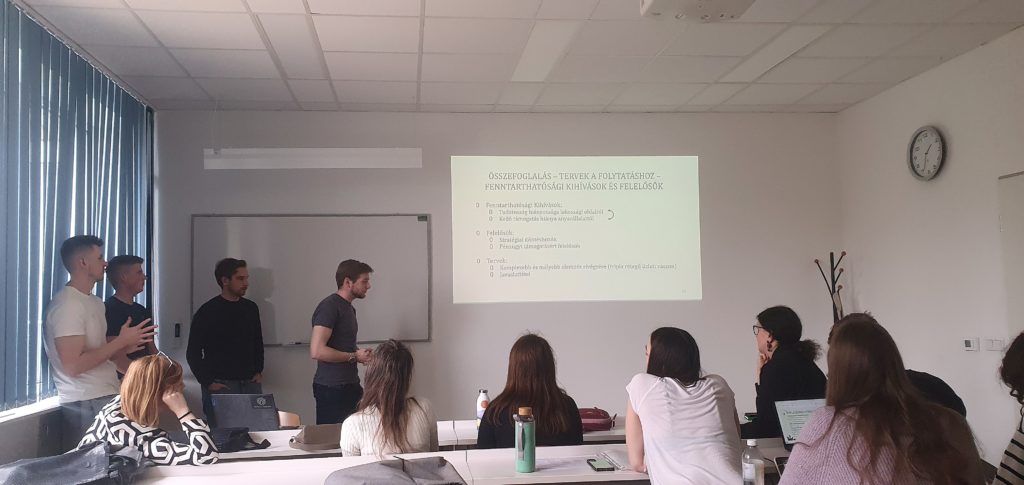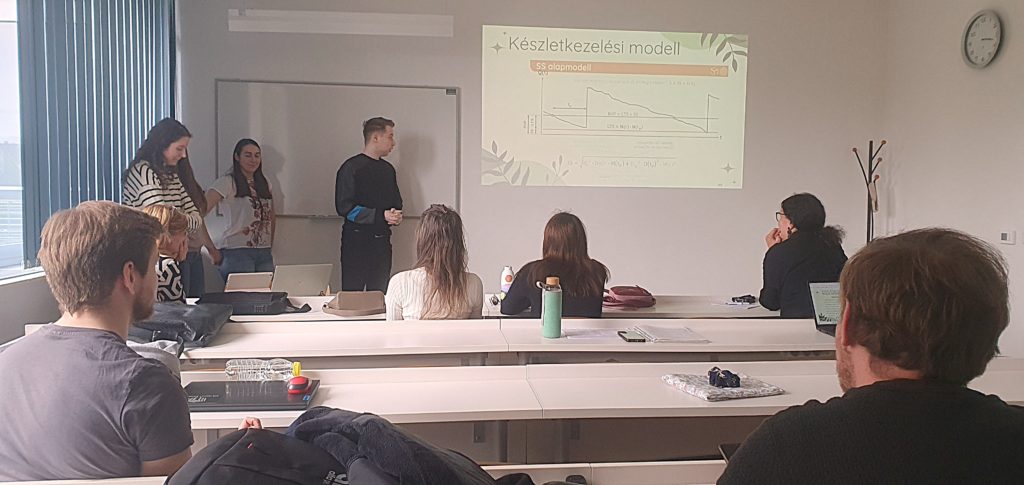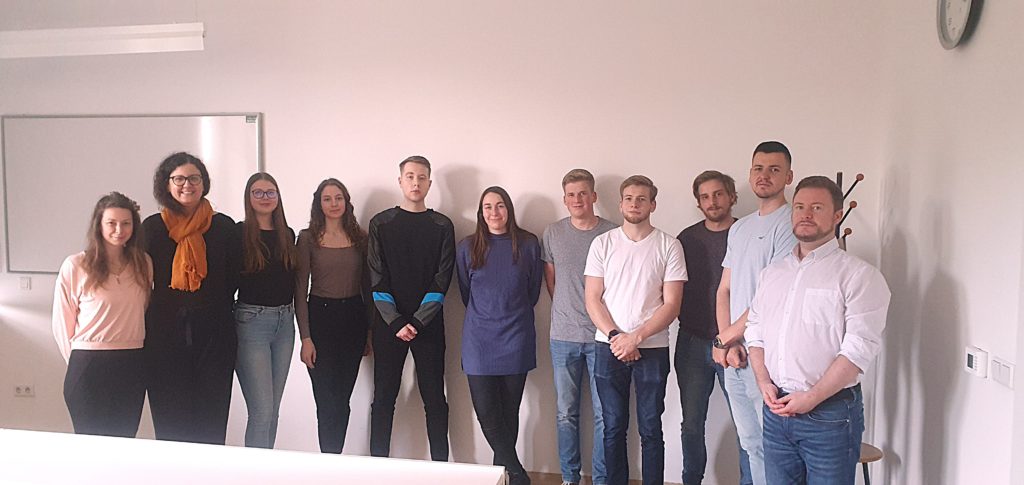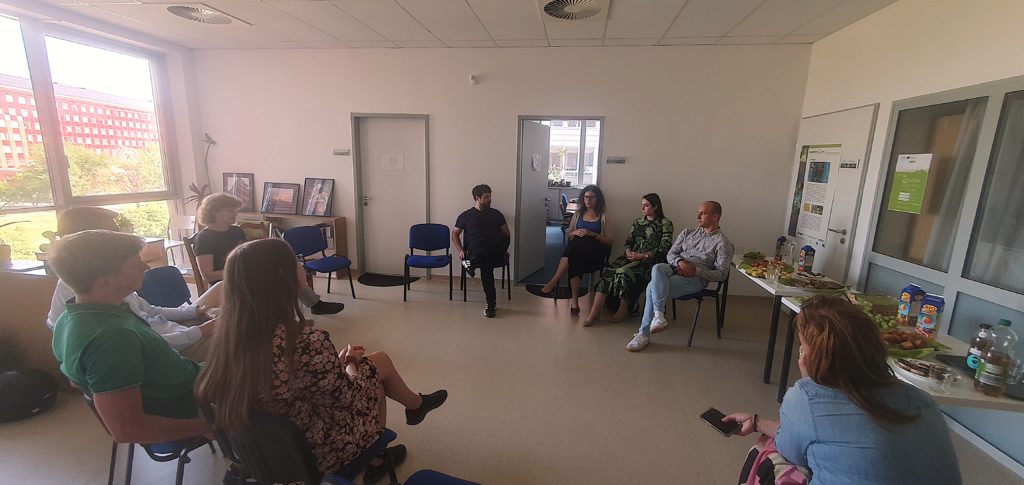Project pilot action blogpost 6. – University Living Lab Series at BME: Empowering Circular Business Innovation
Implementation of the pilot action “Co-creation for more circular cities at the Budapest University of Technology and Economics” related to the Interreg CENTRAL EUROPE NiCE project of the Department of Environmental Economics and Sustainable Development of BME, Part 6: University Living Lab Series at BME: Empowering Circular Business Innovation
Within the framework of the NiCE project, the BME Department of Environmental Economics and Sustainability is working together with the Italian National Agency for New Technologies, Energy and Sustainable Economic Development (ENEA) to develop solutions that help consumers integrate circular economy principles into their everyday lives. Within this framework, the department announced various workshops last year (European Researchers’ Night 2024, Intensive Seminar of the Master programmes of the Faculty of Economic and Social Sciences (GTK)). Closely related to the pilot implementation is the Sustainable Business Model Design course in the spring term of the 2024/2025 academic year, where groups of students from the Energy Engineering, Environmental Engineering, Engineering Management, and Management and Leadership programs can work together with different organizations.
Following the initial partner site visits and the peer review of the BME pilot, the Urban Living Lab (ULL) — conducted as part of the Sustainable Business Model Design course — continued on a weekly basis throughout the 2024/25 Spring semester. During this period, student groups developed proposals to mainstream circular lifestyles through business model innovation in collaboration with the pilot’s business partners.
The programme featured a combination of thematic living lab sessions, co-creative workshops, and group presentations. The three thematic sessions focused on:
- Business modelling and sustainable resource management, with a special emphasis on water saving;
- The nexus between climate and business;
- Limitations and the future of sustainable business models.
A mid-term co-creative workshop on 1 April brought partners and students together. Student groups presented preliminary versions of the partners’ business model canvases and identified partner-specific sustainability challenges, which would become the focus of their work in the second half of the course.
The final project presentations were scheduled for 20 May, following another co-creation workshop held the previous week.
The closing University Living Lab session took place on 4 June 2025, marking the culmination of the pilot action “Co-creation for More Circular Cities at the Budapest University of Technology and Economics.” The final event brought together the Local Stakeholder Board, students, and the BME NiCE Team, and served as a celebration of the successful collaboration.
Both business partners and students emphasized the value and relevance of the ULL methodology—not only for developing essential skills for circular transitions, but also for sparking behavioural change in favour of sustainable consumption. Students particularly appreciated the scientific workshops on topics such as sustainable water management, the climate-business nexus, and the hands-on experience of designing circular business models.
